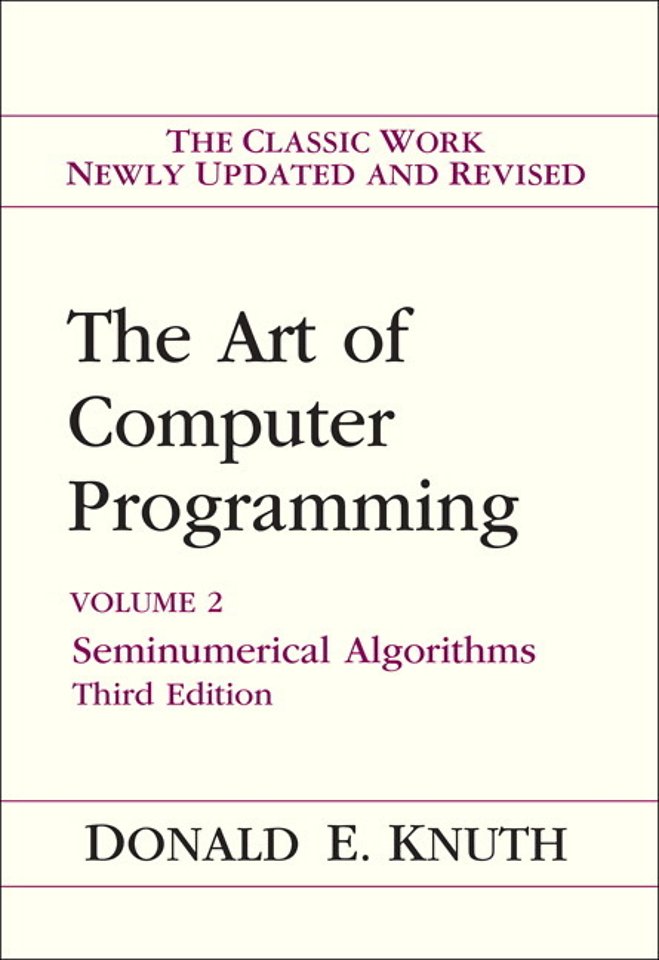



Donald E. Knuth was born on January 10, 1938 in Milwaukee, Wisconsin. He studied mathematics as an undergraduate at Case Institute of Technology, where he also wrote software at the Computing Center.
Meer over Donald KnuthThe Art of Computer Programming, Volume 2
Seminumerical Algorithms , third Edition
Gebonden Engels 1997 9780201896848Samenvatting
The second volume offers a complete introduction to the field of seminumerical algorithms, with separate chapters on random numbers and arithmetic. The book summarizes the major paradigms and basic theory of such algorithms, thereby providing a comprehensive interface between computer programming and numerical analysis. Particularly noteworthy in this third edition is Knuth's new treatment of random number generators, and his discussion of calculations with formal power series.
Specificaties
Lezersrecensies
Inhoudsopgave
Generating Uniform Random Numbers.
The Linear Congruential Method.
Other Methods.
Statistical Tests.
General Test Procedures for Studying Random Data.
Empirical Tests.
Theoretical Tests.
The Spectral Test.
Other Types of Random Quantities.
Numerical Distributions.
Random Sampling and Shuffling.
What Is a Random Sequence?
Summary.
4. Arithmetic.
Positional Number Systems.
Floating Point Arithmetic.
Single-Precision Calculations.
Accuracy of Floating Point Arithmetic.
Double-Precision Calculations.
Distribution of Floating Point Numbers.
Multiple Precision Arithmetic.
The Classical Algorithms.
Modular Arithmetic.
How Fast Can We Multiply?.
Radix Conversion.
Rational Arithmetic.
Fractions.
The Greatest Common Divisor.
Analysis of Euclid's Algorithm.
Factoring into Primes.
Polynomial Arithmetic.
Division of Polynomials.
Factorization of Polynomials.
Evaluation of Powers.
Evaluation of Polynomials.
Manipulation of Power Series.
Answers to Exercises.
Appendix A: Tables of Numerical Quantities.
Fundamental Constants (decimal).
Fundamental Constants (octal).
Harmonic Numbers, Bernoulli Numbers, Fibonacci Numbers.
Appendix B: Index to Notations.
Index and Glossary.
Anderen die dit boek kochten, kochten ook
Rubrieken
- advisering
- algemeen management
- coaching en trainen
- communicatie en media
- economie
- financieel management
- inkoop en logistiek
- internet en social media
- it-management / ict
- juridisch
- leiderschap
- marketing
- mens en maatschappij
- non-profit
- ondernemen
- organisatiekunde
- personal finance
- personeelsmanagement
- persoonlijke effectiviteit
- projectmanagement
- psychologie
- reclame en verkoop
- strategisch management
- verandermanagement
- werk en loopbaan





